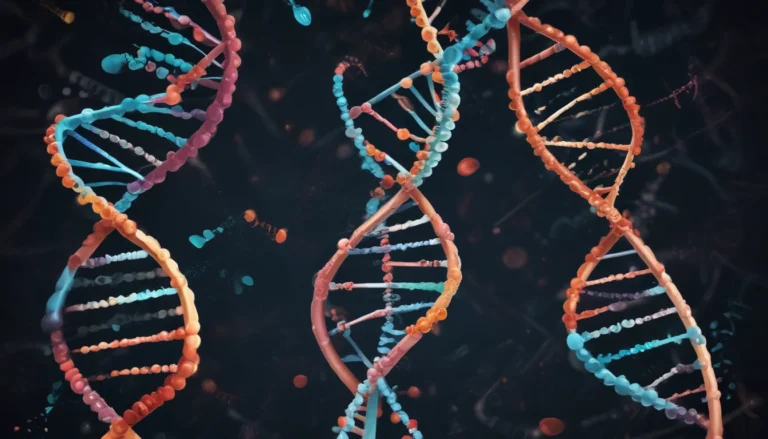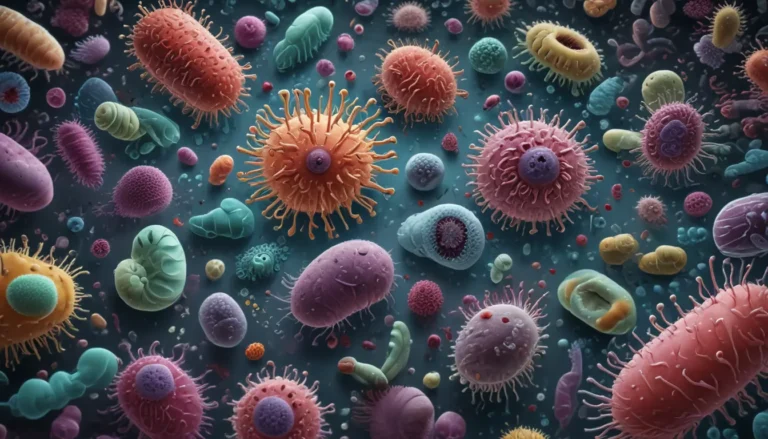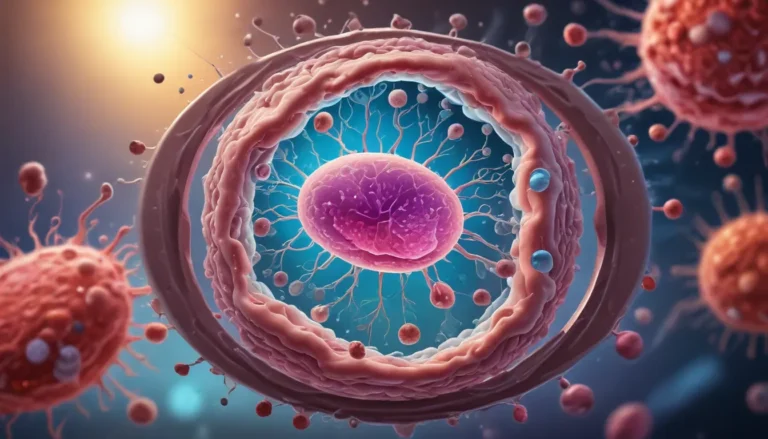A Note About Images: The images used in our articles are for illustration purposes only and may not exactly match the content. They are meant to engage readers, but the text should be relied upon for accurate information.
Angiogenesis, the process of forming new blood vessels, is a captivating phenomenon that plays a crucial role in various biological processes, including wound healing, embryonic development, and the formation of the circulatory system. In recent years, the study of angiogenesis has garnered significant attention due to its implications in diseases such as cancer, cardiovascular disorders, and age-related macular degeneration.
Delving into the Wonders of Angiogenesis
Angiogenesis is the process of forming new blood vessels, playing a vital role in embryonic development, wound healing, and disease. It’s tightly regulated and offers potential for treating various conditions like cancer and eye disorders. Understanding angiogenesis opens up new possibilities for treating and preventing diseases. The delicate balance of pro-angiogenic and anti-angiogenic factors holds the key to harnessing its power for medical advancements.
Exploring the Complexity of Angiogenesis
Angiogenesis is a complex and tightly regulated process that is essential for various physiological and pathological processes, including embryonic development, wound healing, and tumor growth. The growth of new blood vessels is controlled by a delicate balance of pro-angiogenic and anti-angiogenic factors, highlighting the intricate nature of this biological process.
The Role of Angiogenesis in Development and Healing
During embryogenesis, angiogenesis is crucial for supplying nutrients and oxygen to developing tissues and organs. Additionally, angiogenesis helps to establish new blood supply in injured areas, promoting tissue regeneration and repair. This process is tightly regulated by signaling molecules, such as vascular endothelial growth factor (VEGF), that stimulate the formation of new blood vessels.
Therapeutic Applications of Angiogenesis
Abnormal angiogenesis is associated with various diseases like cancer, diabetic retinopathy, and rheumatoid arthritis. Anti-angiogenic therapies can be used to treat cancer by inhibiting the formation of new blood vessels, thus starving tumors of the nutrients they need to grow. Additionally, angiogenesis can be stimulated by exercise, promoting improved blood flow and oxygen delivery to tissues.
The Intriguing Mechanisms of Angiogenesis
The process of angiogenesis relies on the careful balance of stimulators and inhibitors, including factors like VEGF and thrombospondin-1. This balance is essential for the growth and spread of cancer, as tumors induce angiogenesis to ensure a blood supply for their growth and facilitate metastasis. The development of anti-angiogenic therapies, such as drugs targeting the VEGF protein, has revolutionized cancer treatment.
Angiogenesis in Disease and Treatment
Angiogenesis is also implicated in inflammatory diseases like psoriasis and inflammatory bowel disease, involving abnormal angiogenesis in inflamed tissues. In conditions like age-related macular degeneration and diabetic retinopathy, angiogenesis inhibition can be used to prevent vision loss by blocking abnormal blood vessel growth in the retina. Moreover, angiogenesis is a key component of tissue engineering, essential for successful implantation of engineered tissues and organs.
The Future of Angiogenesis Research
Angiogenesis continues to be a fascinating and dynamic process that serves as a topic of exploration in the field of biology. As researchers delve deeper into the mechanisms and regulation of angiogenesis, new insights and interventions are being discovered. The balance between pro-angiogenic and anti-angiogenic factors holds the key to unlocking the potential of angiogenesis for medical advancements, promising exciting developments in the fields of biology and medicine.
Conclusion: Unlocking the Potential of Angiogenesis
Angiogenesis, the process of new blood vessel formation, is a vital phenomenon in biology with significant implications for health and disease. Understanding the intricacies of angiogenesis has led to groundbreaking discoveries and innovative therapies, offering new possibilities for personalized medicine and revolutions in healthcare. As our knowledge of angiogenesis expands, further advancements in medical treatments and interventions can be expected, harnessing the power of this fascinating process for the betterment of human health.
FAQs: Your Questions Answered
- What is angiogenesis?
-
Angiogenesis is the process of forming new blood vessels from pre-existing ones, vital for various physiological and pathological conditions.
-
Why is angiogenesis important?
-
Angiogenesis is essential for normal development, wound healing, and reproductive processes, playing a critical role in diseases like cancer, cardiovascular disorders, and retinopathy.
-
How is angiogenesis regulated?
-
Angiogenesis is regulated by a complex interplay of various molecular signals, including growth factors, cytokines, and cellular interactions.
-
Can angiogenesis be targeted for therapeutic purposes?
-
Yes, therapies targeting angiogenesis can inhibit tumor growth or promote blood vessel formation in damaged tissues.
-
Are there diseases associated with abnormal angiogenesis?
-
Several disorders, including cancer, age-related macular degeneration, and diabetic retinopathy, involve abnormal angiogenesis.
-
How is angiogenesis studied in the laboratory?
-
Scientists use experimental techniques like in vitro assays, animal models, and imaging technologies to study angiogenesis in the laboratory.
-
Can angiogenesis research lead to new therapeutic approaches?
- Understanding angiogenesis mechanisms can provide insights into novel therapeutic targets and the development of drugs for medical interventions.
Our Commitment to Quality Content
Our dedication to delivering trustworthy and engaging content is reflected in every fact we share. Contributed by real users, each insight brings a wealth of diverse information to enrich your understanding. Our commitment to accuracy and authenticity ensures you receive fascinating and credible content. Trust in our unwavering commitment to quality as you explore the fascinating world of angiogenesis.





